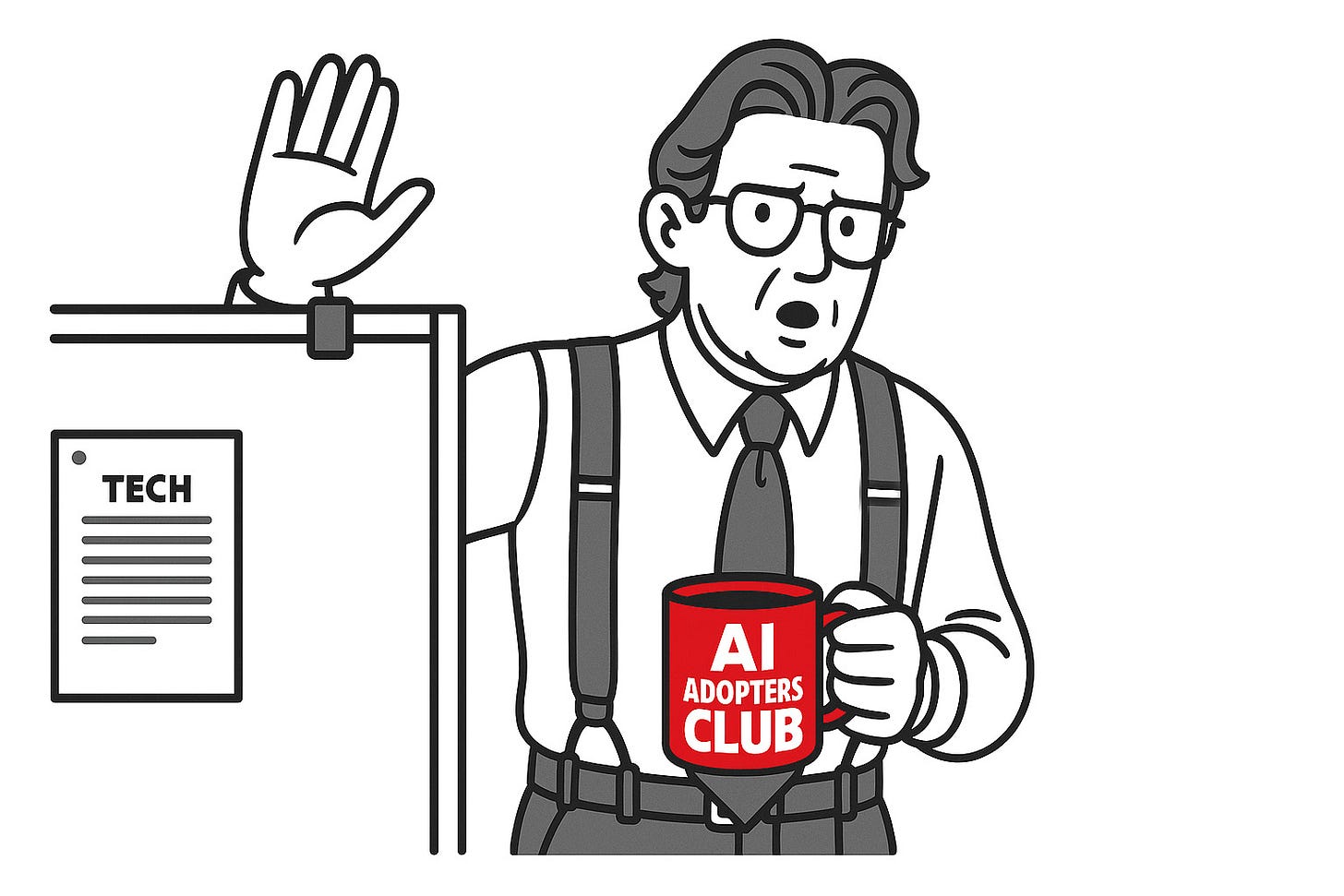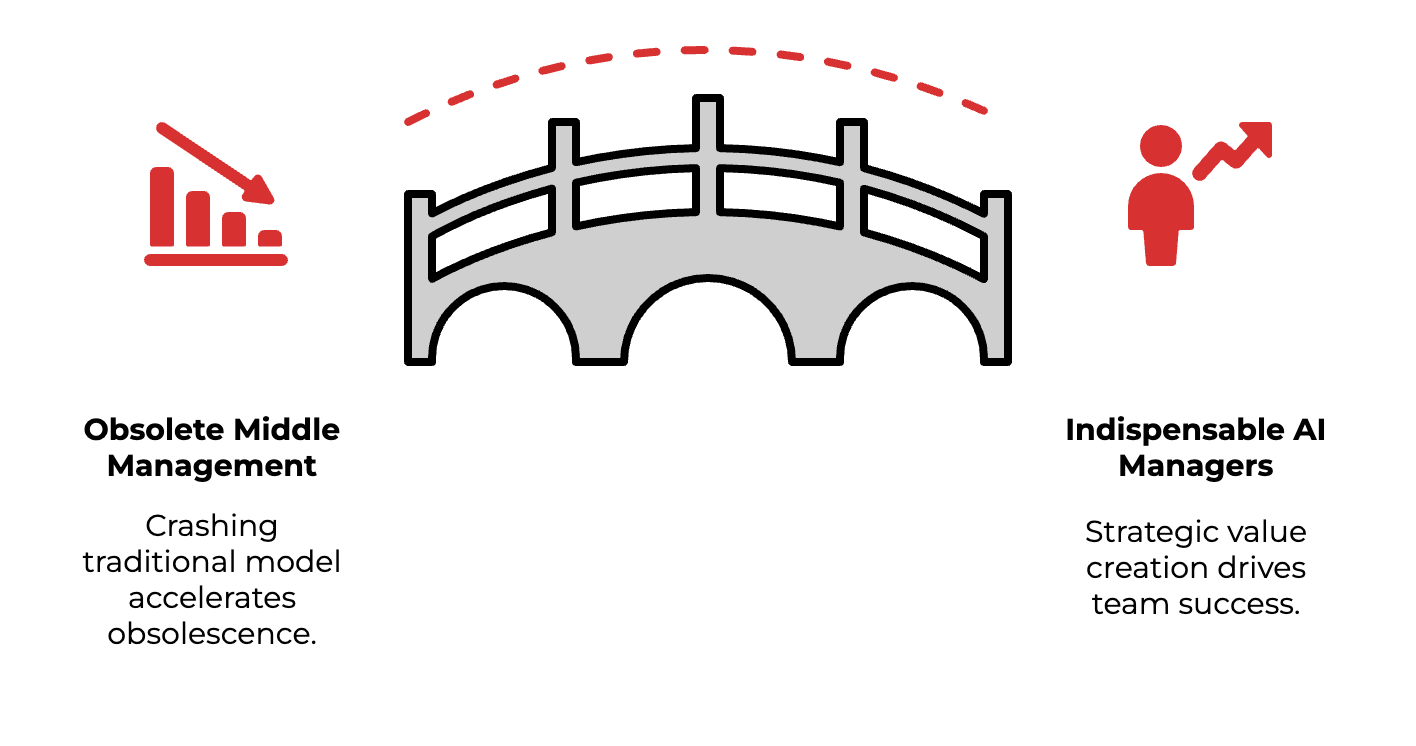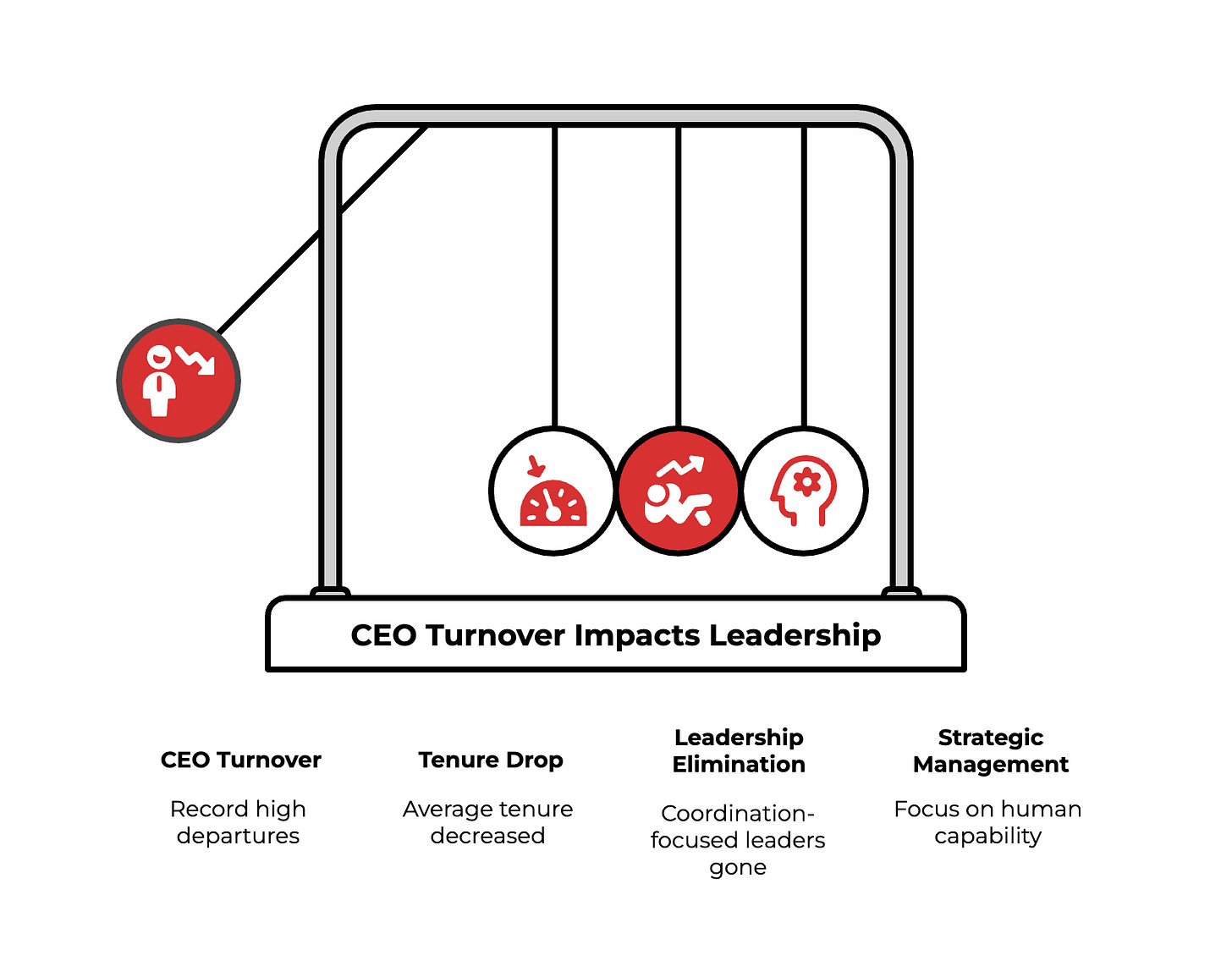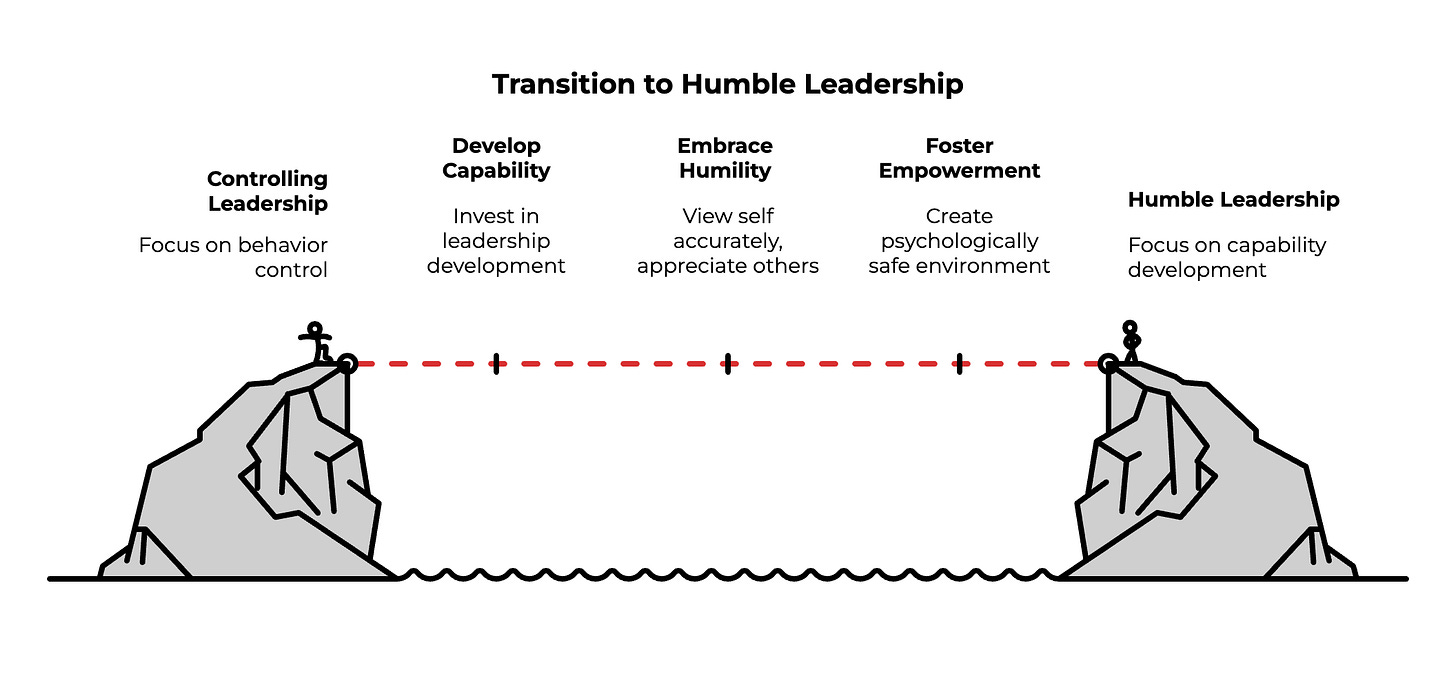The $80K Middle Manager Is Going Extinct
Harvard study reveals which leadership roles survive the AI purge
Hey Adopter,
You probably felt it in your last team meeting. That nagging sense that half your coordination work could disappear tomorrow. The way your direct reports seem to need you less. The growing realization that AI isn't just changing your team's work, it's changing the fundamental need for your oversight.
You're not imagining it. And you're not alone.
Harvard Business School tracked 50,000 developers using GitHub Copilot for two years. The results should concern every middle manager, team lead, and director reading this newsletter.
Coding activity shot up 5%. Project management collapsed by 10%.
That's not productivity gains. That's the sound of an entire layer of management becoming irrelevant overnight. If you're a manager whose day revolves around coordination, status updates, and project oversight, this data is your wake-up call.
Here's what you'll discover in this analysis:
Why the traditional middle management model is crashing faster than most leaders realize
How the broken performance review system is actually accelerating management obsolescence
What leadership approaches are proving effective as AI transforms team dynamics
The three capabilities that make managers indispensable in an AI-powered workplace
Practical steps to transition from task management to strategic value creation
The coordination economy just crashed
Think about your typical Tuesday. How much time do you spend chasing status updates? Coordinating between team members? Managing project timelines? Resolving communication gaps?
The Harvard study reveals what's coming for every knowledge work environment. Developers needed less hand-holding. Less coordination. Less of what we've been dignifying with the word "management" for decades.
AI didn't just make them faster coders. It made them autonomous enough that project management became background noise. They could solve problems without escalation. Deliver results without check-ins. Work without someone constantly asking for status updates.
This pattern is spreading beyond tech faster than most companies realize. AI is automating routine supervisory functions like scheduling, performance tracking, and operational decisions. The busy work that made managers feel important is getting absorbed by dashboards and workflow assistants.
The hard truth? Most middle management was just expensive babysitting dressed up with fancy titles.
Your performance review system is broken beyond repair
Speaking of obsolete systems, let's talk about the annual performance review circus that consumes weeks of your time every year. Only 14% of employees say their performance reviews inspire them to improve. Fourteen percent.
That's not just ineffective. That's catastrophically worthless.
The problem runs deeper than bad processes. People cannot reliably rate the performance of others. Over half of all feedback reflects the rater's own traits rather than the person being evaluated. We've been using broken measuring tools to justify jobs that AI can now do better.
Meanwhile, companies ditching traditional reviews for continuous development see 30% higher revenue growth. They're not just abandoning a broken system. They're building something that works.
The leadership exodus tells the real story
CEO turnover hit record levels last year. 2,221 departures in the US alone, up 16% from the previous record. Average tenure dropped to 6.8 years, down from 9.2 years just two years ago.
Leaders who think their job is coordination and oversight are getting eliminated faster than ever. Boards are done with managers who mistake activity for value creation.
The survivors understand that management is becoming a strategic discipline focused on developing human capability, not monitoring human behavior.
What actually works now
Smart leaders are already making the transition. They're moving toward what researchers call "humble leadership" and coaching approaches.
This isn't soft skills nonsense. Companies that invest in leadership development see 32% reduction in turnover and 10% increase in productivity. The math works.
Humble leaders focus on developing capability instead of controlling behavior. They view themselves accurately, appreciate others' strengths, and remain open to feedback. Research shows this creates environments where employees feel empowered to take initiative.
The new management role requires three capabilities that AI can't automate: strategic thinking instead of task coordination, building human capability instead of monitoring compliance, creating psychological safety instead of enforcing hierarchies.
The gender gap nobody talks about
Here's something the leadership books won't tell you. When male workers feel their status is threatened, they become more likely to lie, cheat, and steal compared to their female counterparts. They also become less helpful and less collaborative.
This matters because AI is reshaping traditional role boundaries faster than most organizations can adapt. Creating inclusive cultures that don't pit genders against each other becomes critical when everyone's job description is changing.
The research also reveals that women are rewarded for collaborative behaviors while men are rewarded for both collaborative and assertive behaviors. This creates cycles where women spend time on undervalued tasks while having fewer opportunities for advancement.
Your next strategic move
Stop managing tasks. Start developing people.
AI handles coordination. Your job is creating environments where both humans and AI contribute their best work. That means asking better questions instead of giving more directions. Building capability instead of monitoring activity. Facilitating outcomes instead of controlling processes.
The GitHub study isn't just about developers. It's a preview of every knowledge work environment in the next two years. The managers who figure this out first become indispensable. The ones who don't become redundant.
The transition is happening whether you participate or not. The only question is whether you'll lead it or get left behind by it.
Adapt & Create,
Kamil







When I first read the title, my middle-manager brain should have gone straight to panic mode. Instead, as I read on, I found myself nodding along. It was reassuring to see that the shift you describe is precisely where I’ve already been heading.
My humble leadership style is empathic leadership: people first, always. My focus is on developing my team’s capabilities, making strategic decisions, and guiding us toward long-term outcomes, not on keeping track of who’s doing what minute-to-minute. Coordination is a much smaller part of my role, and if I see it starting to take over, I delegate it.
Just recently, I brought in a project manager so my team and I could get back to what we do best, driving strategic initiatives. Posts like this remind me: staying relevant as a leader means shifting from managing tasks to empowering people. AI might be taking coordination off our plates, but that makes room for the real work of leadership.
This is an interesting distinction. It seems you're conflating people managers with project managers, which are quite different roles.
Based on what I've seen at many companies, including FAANG/MAANG, it's the people manager role that's becoming less desirable, meaningful, and valuable. The ratio of managers to individual contributors is increasing, which puts the people manager role at risk of becoming obsolete.
In contrast, the project manager role is here to stay, particularly the part that involves orchestration. I've been involved in over 100 projects, including managing some 'real' AI projects, and while I do delegate some tasks to AI, I don't see it replacing me anytime soon. It might happen someday, but not in the foreseeable future.